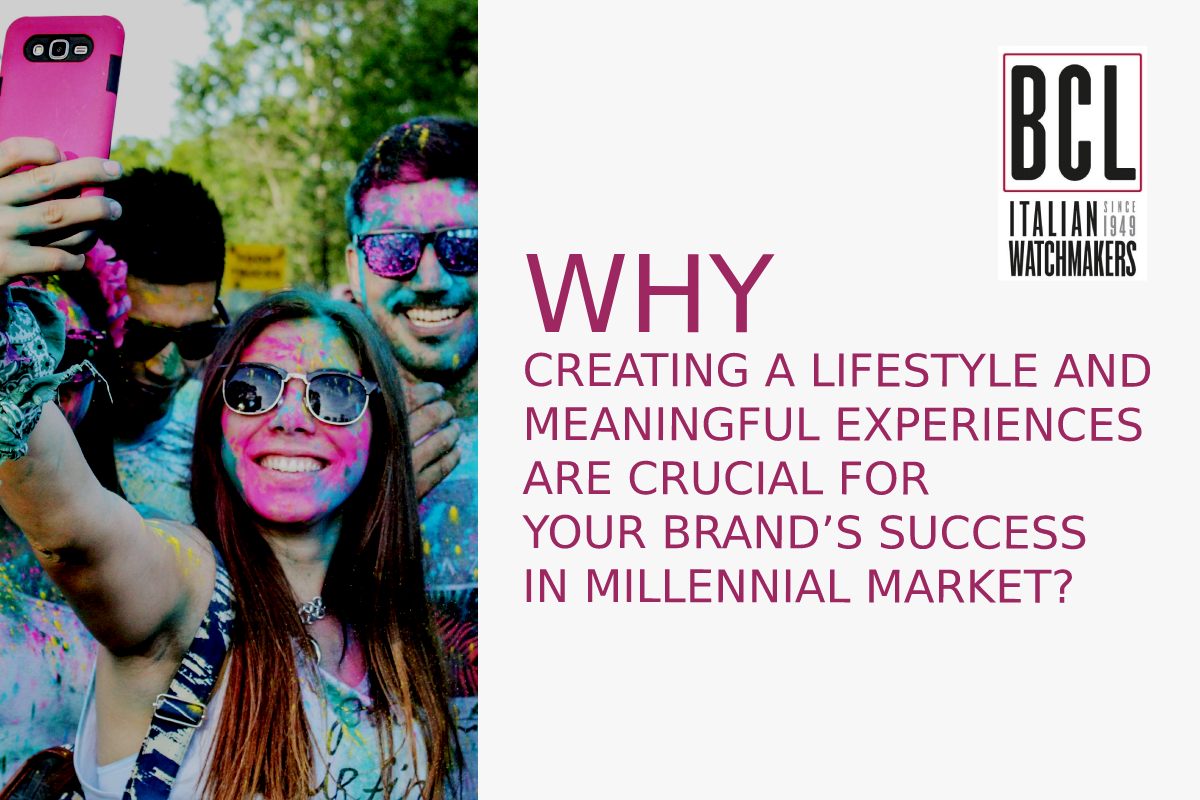Why creating a lifestyle and meaningful experiences are crucial for your brand’s success in Millennial market?
Millennials, the generation born between 1981 to 1996, represent the largest part of the population, and consequently they hold the greatest buying power. This generation was projected to spend more than $1.4 trillion in 2020.
What’s more, being the biggest users of social media and online shopping, millennials are completely redefining consumer marketing and the way we do business.
Millennials’ pursuit of happiness
In the world of business, a great importance in put into understanding and predicting consumer behavior. This holds especially true in today’s world of social commerce, where consumer understanding goes beyond demographics like age and location - it further extends and centers around fully grasping consumers’ underlying motivations that drive their shopping decisions.
According to the ZenithOptimedia “The Pursuit of Happiness” study, differently from the older generation, Millennials value living a purposeful life filled with meaningful experiences over material possessions.
In turn, Millennials use these experiences to define themselves and what they stand for. Living in the golden age of social media, they get to share these experiences with others, which gives them a sense of identity, purpose, and belonging.
Millennials are changing the market
Millennials’ pursuit of happiness centers around collecting experiences that help them shape their identity and take on a social role. This pursuit is reflected in their spending habits.
The Millennial generation prefers to engage with and buy from brands that share their values, social and political beliefs.
They go as far as to boycott a business due to its stance on an issue that goes against their beliefs. Specifically, 39% of Millennials have boycotted a business for this reason.
So, as the graph below demonstrates, simply focusing on manufacturing and selling goods is not enough for a brand to succeed nowadays. Brands must stand for something greater than their business.
Graph: 5WPR 2020 Consumer Culture Report
Moreover, via the use of the Internet and social media, Millennials get to engage with brands more personally and form an emotional connection. In fact, they expect this two-way relationship with companies.
Therefore, it’s clear to see that the world of e-commerce and social media has added a layer of complexity to the mapping of the consumer purchase journey. More than four out of five of millennials will purchase something they saw online on impulse. So they also expect for brands to make it easy for them to do so.
At the same time, Millennials have a great influence over other consumers. They are prone to sharing their brand and product experiencing online, aiding the buying journey of potential customers. The PWR5 2020 Consumer Culture Report found that 72% of millennials are influenced by external sources when making a purchase, being it online influencers, consumer reviews, or blog posts.
It’s safe to say that Millennials have the power to directly impact a brand’s success - either positively or negatively.
4 ways to create meaningful brand experiences for the millennial market
1. Make it a two-way conversation
Successful brands understand the people they cater to. So, pay attention to your customers’ comments across social media, respond in real-time, address complaints, and include them in the decision-making process by asking for their input. This can serve as a source of innovation and will help you better fulfill their needs - and in turn, boost your bottom line.
2. Humanize your brand
The previous point will help your brand appear more human, while at the same time help establish your brand identity. And your brand identity goes beyond what services and goods you offer. After all, Millennials prefer to buy from authentic brands that share their values. So, what do you stand for and what values drive your business are essential to your brand’s success.
3. Stand for something greater than your brand
Millennials put their money where their heart is. They are willing to pay a premium to support a brand that supports a cause that it’s close to their heart - such as a brand that has a charitable, ethical, or sustainable component. Inherently, people want to do good. Engaging with brands that promise to make the world better gives Millennials a sense of purpose and helps shape their identity as people who have a positive impact in the world.
4. Streamline the consumer journey
In the digital age, Millennials expect an effortless consumer journey. Simply put, make it easy for them to find you and buy from you. For example, you can make use of social commerce features that allow customers to purchase directly via the social media channel they found you, add reviews and product information to aid their decision-making process, and remember their past information to make the checkout faster.


